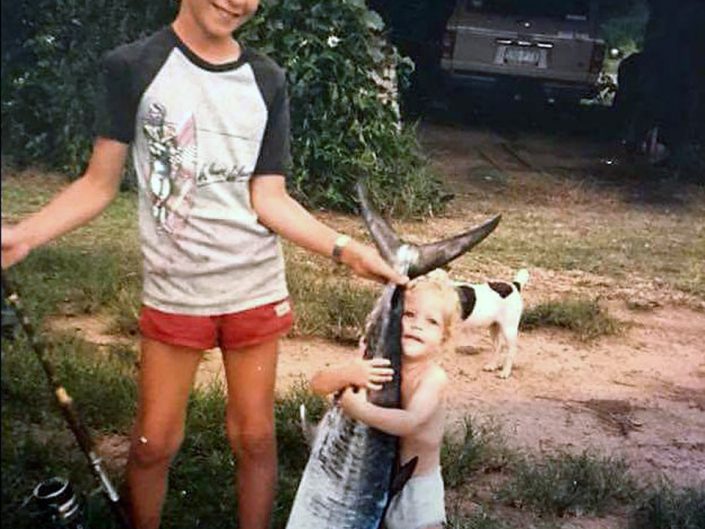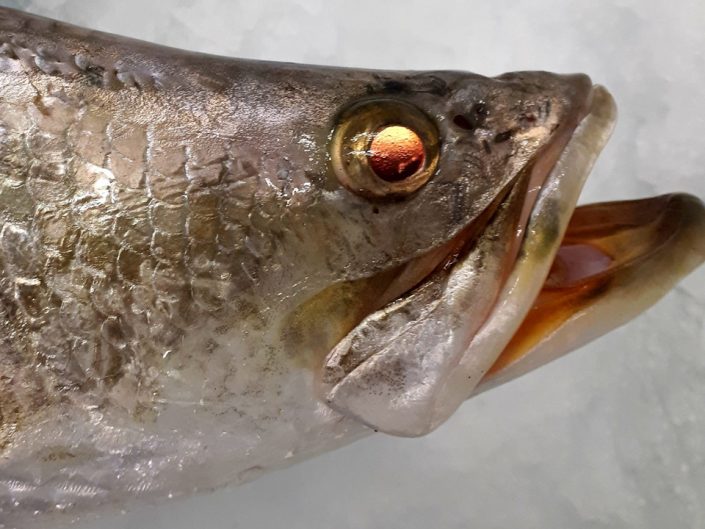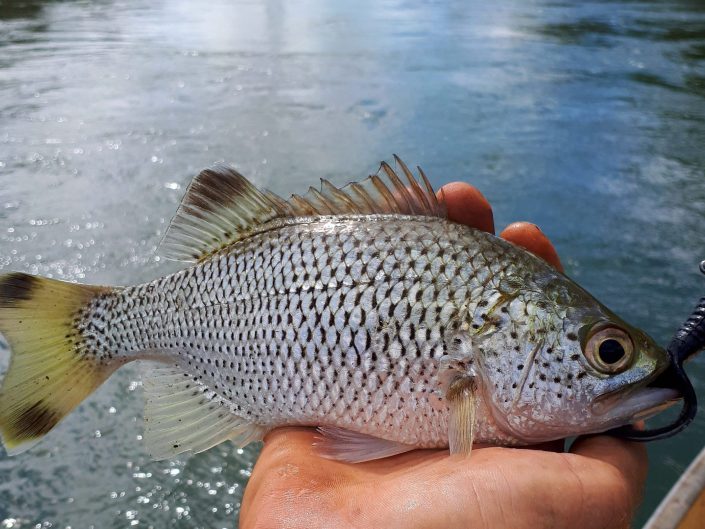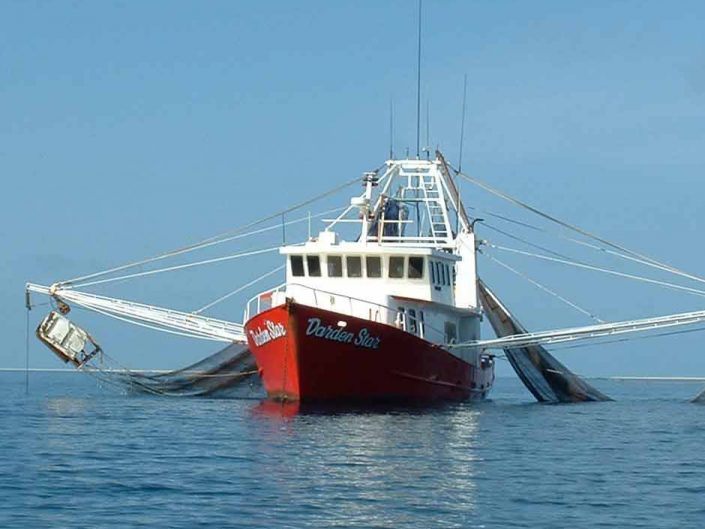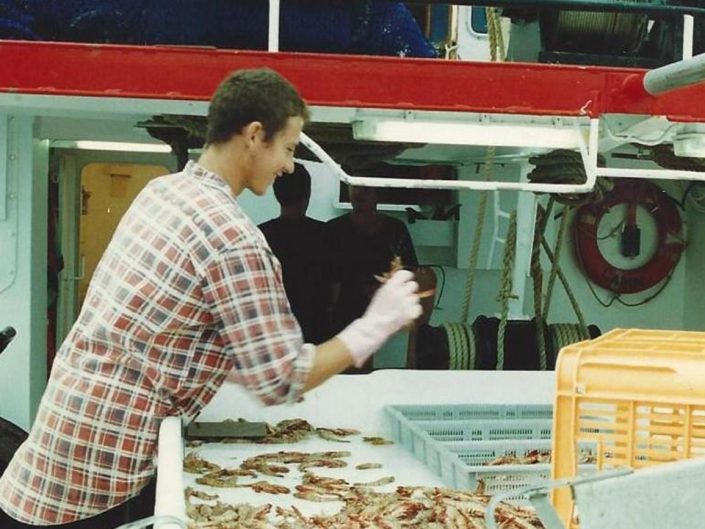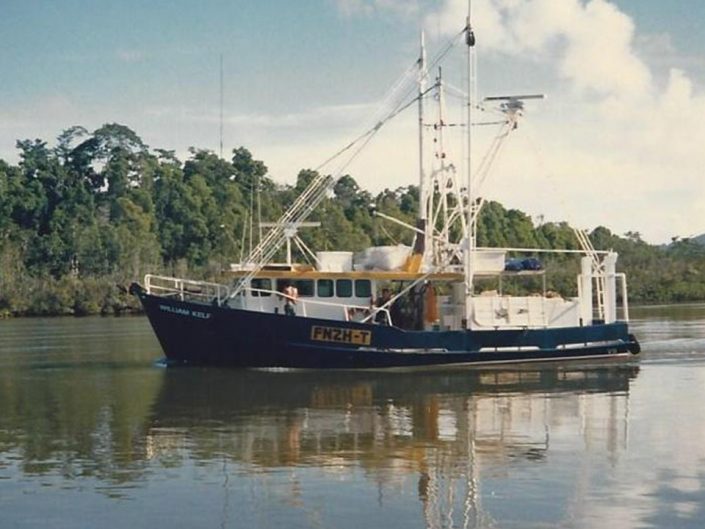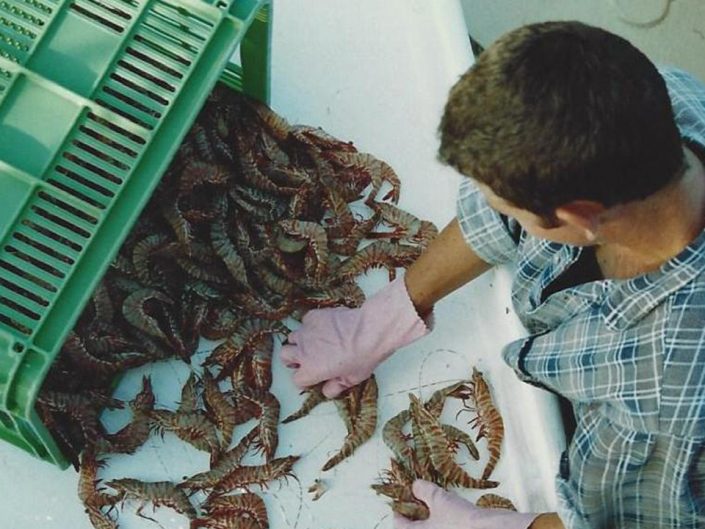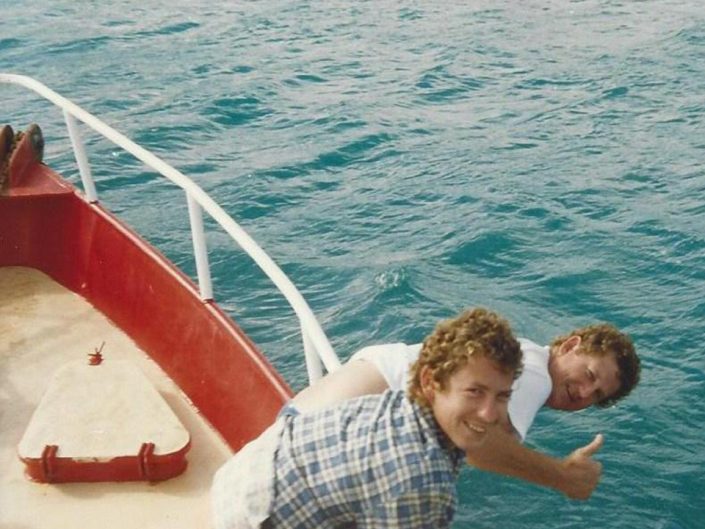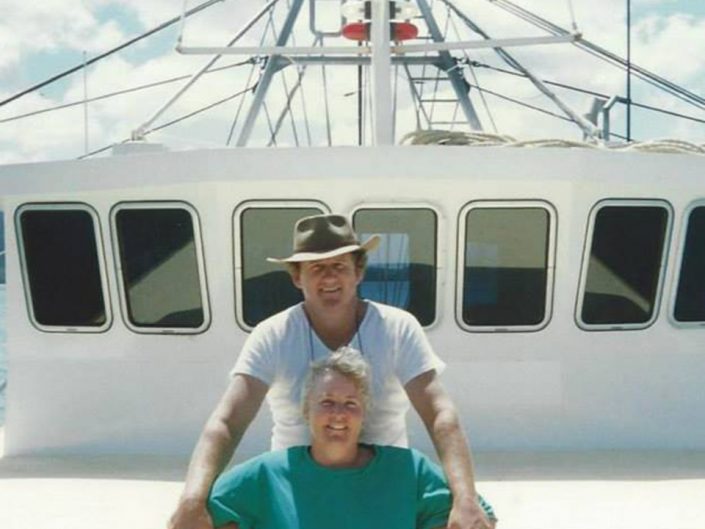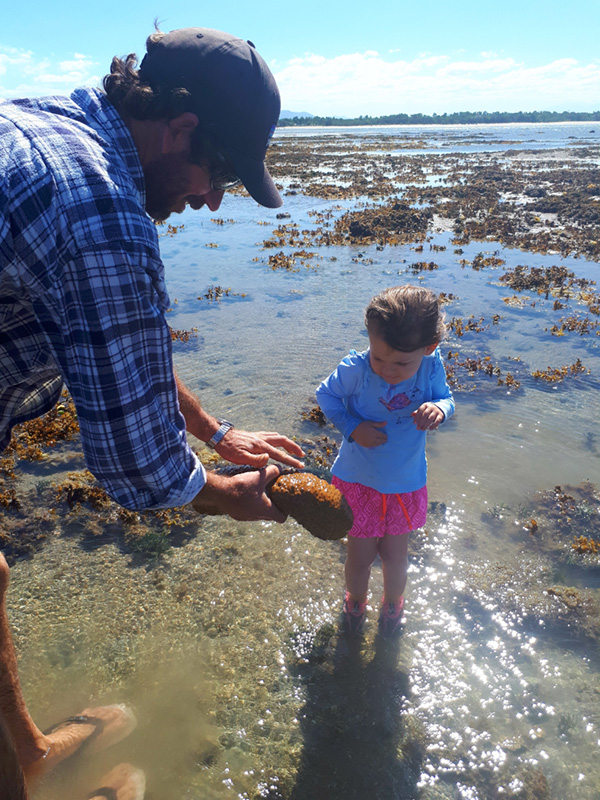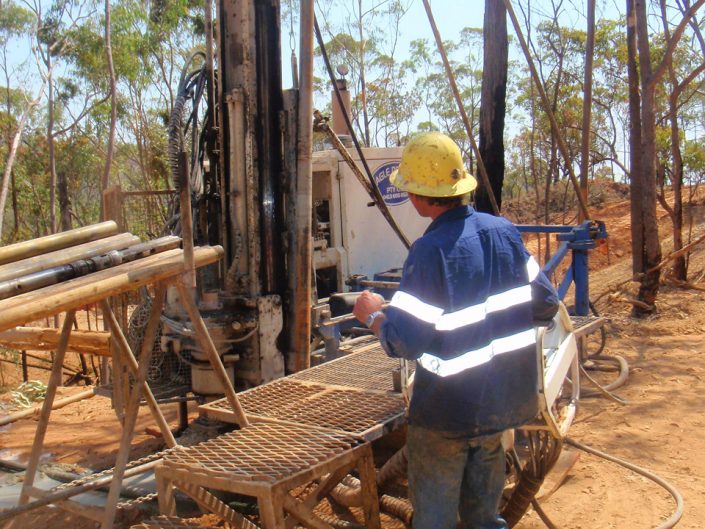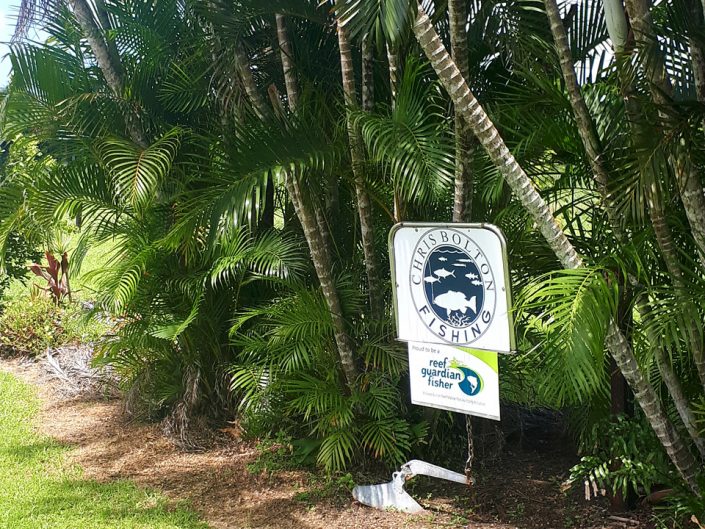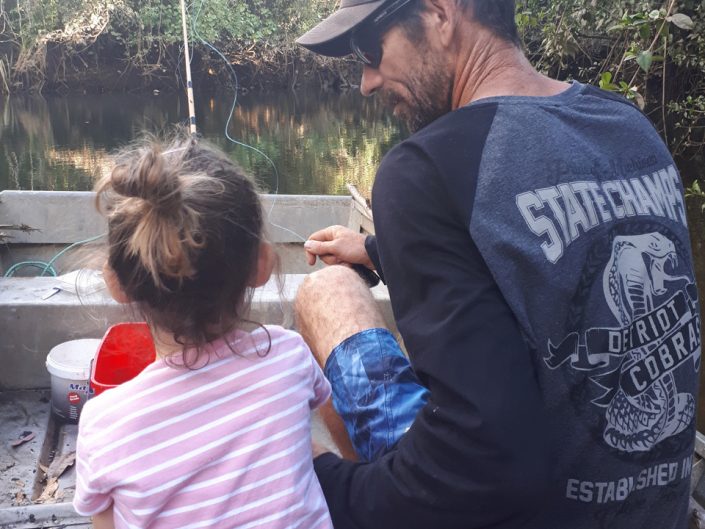About Chris
Both my grandfathers were fishermen, my father and my uncles are fishermen and all fish in the same areas of the Great Barrier Reef and catchment that I fish today.
I have spent more days on and in the Great Barrier Reef than I have on dry land!
From the age of 5, all I wanted to do was to go fishing. Growing up on the banks of the Johnstone River meant almost every afternoon after school, I was fishing for black bream, jungle perch, mangrove jack and barramundi. This was where I learnt about having the right bait.
I was always in trouble for digging up the gardens in the search for worms. For cutting up fly screens, mesh and containers to make a new improved yabby trap. Or for using the rump steak out of the fridge to use as bait in my traps.
If no one could find me, they knew I was either looking for bait or along the river using that bait.
During the first few years of primary school, I was only allowed to go to the reef with my Dad on weekends. But by the age of 10, I was mysteriously getting ‘sick’ on school days every time my Dad was going fishing, mud crabbing or cray diving. Of course the fresh ocean air and being on the water made me feel instantly better!
On finishing Grade 10 with very good marks, my parents reluctantly decided to let me quit school and begin my working career.
In 1993, at just over 15 years of age, I started as a deckhand on my Uncle and Aunt’s prawn trawler – “FV William Kelf” and later on the “FV Darden Star” in the Torres Straits. This was an eye opener, I was a boy in a man’s world. Welcome to the real world, they told me! I still remember my first first fishing trip and i always will. 187 days at sea without touching dry land, 4-5 hours sleep per day, relentless 30 knot winds and rain of the Torres Strait monsoon, night after night. I was cold, wet and tired day after day but I loved it! I was finally fishing for a job.
It was where I first learnt about the importance of having quality product.
My Uncle was very strict on quality. It didnt matter if you were tired, sick, missing home or in a hurry. Safety and a high quality product was what came first. During my time on prawn trawlers, I also learnt to design, make and trial different types of nets. We also constantly designed and trialled new bycatch reduction devices (BRD), and turtle excluding devices (TED) on the nets.
I can remember many times, failing with new devices, but over time we had great success. Not only were we helping the environment, we were actually making our job easier by greatly reducing bycatch. Those hundreds of hours sewing new devices into nets while tired and weary after long nights working, had finally produced very positive results.
After 5 years of trawling for prawns and scallops, I decided I needed a change. I tried a few land-based jobs – working at an aquarium fish hatchery, a barramundi hatchery, sandblasting and spraypainting with a few short stints working on the ocean in between.
Breeding and handling fish was fun, but nothing made me as happy as fishing. The salt was in my veins. I decided to go back to what I loved, line fishing on the Great Barrier Reef.
After some time line fishing, I was again looking for something different. This time I would get even closer to the Great Barrier Reef – commercial bech-de-mer diving. During this time, I dived the reef from Cooktown in the north to the bottom of the Swains Reefs in the south. Many hours were spent swimming at depth searching for bech-de-mer, sometimes not a single one in sight for days.
These times taught me a great deal about the behaviour and feeding habits of many reef fish and their habitat. I would quite often take my mind off bech-de-mer, and swim around observing different fish in their natural environment. I am not talking minutes, I am talking hours and hours, day after day, slowly swimming centimetres from the bottom of the Great Barrier Reef, at 40m, looking up at fish, coral, sponges, crayfish, crabs, starfish, sharks, eels, snakes etc, and learning something new every day.
After swimming hundreds of kilometres on the bottom of ocean and spending thousands of hours at depths of up to 40 metres, as much as I loved it, I realised this type of work was doing my body no favours. My joints were always hurting, my sinuses were bleeding almost every day, I felt like I was starting to grow gills. It was time to go.
I needed to make some serious money so that I could buy my own boat and run my own fishing business. Mining was where the money was at, so I went west, far from the ocean. First off-siding on an exploration drill rig and then running a drill rig myself, to supervising several drill rigs.
During an exploration program drilling for copper, I met a geologist that changed my life. She was smart, funny and good-looking and also came from a fishing family. We decided to invest in our own boat and licence and live the lifestyle we had both always dreamed about.
As with any business, the first few years was tough. We went from two very good salaries in the mines to an absolute struggle trying to set up and run a small business. Some years later, with a lot of hard work and stressful times in between, we now have our own piece of paradise at Kurrimine Beach in Far North Queensland, a beautiful daughter and a successful fishing business.
Both my grandfathers were fishermen, my father and my uncles are fishermen and all fish in the same areas of the Great Barrier Reef and catchment that I fish today. I have spent more days on and in the Great Barrier Reef than I have on dry land.
I have worked or played on the reef all the way from the Torres Straits in the north, to Fraser Island in the south, including many of the creeks and rivers that flow onto the Great Barrier Reef.
I have seen the good, and the bad that affects the reef from commercial fishing, tourism, recreational fishing, farming etc. I have seen enough to know that the Great Barrier Reef is a truly special place. A special place that is able to be sustainably utilised and enjoyed by all, but we all have a responsibility.
I know this not from reading books, or from what I hear, I know this through my own experiences, and seeing it with my own eyes.
Chris Bolton Fishing will continue to do the best we possibly can. The best we can do for our customers, the best we can do for the environment and the best we can do for the future of the Great Barrier Reef. If we look after these things, our business and our family’s future will look after itself!


